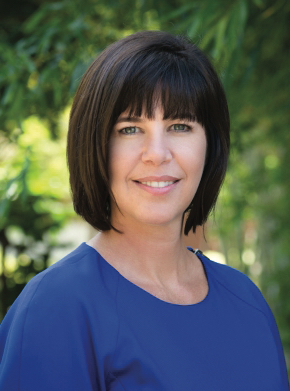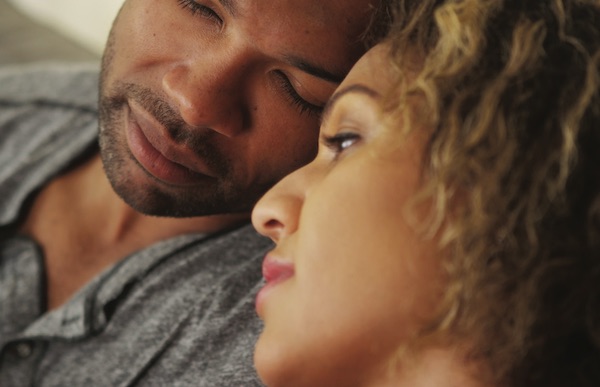Facing Cancer Together
How Women with Cancer and Their Partners Can Learn to Work As a Team
by Courtney Bitz, LCSW
When a woman is diagnosed with cancer, it can send her life into a tailspin and cause a great deal of emotional turmoil. However, she is not the only one who may suffer emotional distress. Cancer can take a toll on her partner as well, with some studies revealing that partners experience just as much distress as the person diagnosed.
Research shows that women cope better with their illness when they have an emotionally supportive partner.
And here’s the rub. Research shows that women cope better with their illness when they have an emotionally supportive partner. However, a distressed partner may have a difficult time providing the needed emotional support. Because of this, it is essential for couples to learn how to work together to manage the stress that accompanies a cancer diagnosis.
Bridging the Gap Between the Sexes
Supporting Your Partner Through Cancer: Practical Tips for Men
Even the most supportive partners can have a difficult time knowing what to say, what kind of comfort to provide, and where to find help. Here are some practical tips for men on what to do when the woman you love is diagnosed with cancer:
- Communicate with her in a way that you will be proud of in the future.
- Actively encourage her to share her emotions, concerns, and fears.
- Listen to her concerns without trying to minimize them, fix things, or give advice (unless asked).
- Only give reassurances that are firmly based in reality. For example, “You can count on me.”
- Be physically present at all medical appointments, even when not asked.
- Take notes, ask questions, and learn about her illness and treatments.
- Help her share information with others she wants to keep informed.
- Advocate for her if needed (whether with healthcare providers or family members).
- Be honest about your feelings. Talk with her about how the illness is affecting you.
- Offer a listening ear for her to express her concerns as often as she needs to.
Though each individual is unique, in general, men and women often respond differently during times of stress. Women typically reach out to others to share their concerns and fears, whereas men are less likely to discuss their emotions, especially when that emotion is fear. Men often respond to stress by trying to solve the problem, while women often want to talk it out.
To bridge the gap, women with cancer and their partners need to learn to work together as a team, recognizing each other’s strengths (and weaknesses), and building upon those strengths. For example, partners may learn that instead of immediately trying to solve a problem, it’s OK to simply sit quietly and listen, even if the woman is crying or upset. And women may learn that they should focus only on what they need from their partner today, and avoid bringing up past grievances.
For Women Facing Cancer – How to Help Your Partner Help You
Chances are your partner really wants to be there to support you through cancer. However, he may not always know the right thing to say or the best way to offer support. Here are some things you can do to help your partner help you through cancer:
- Communicate with him in a way that you will be proud of in the future.
- Be honest and direct with him about how you feel, especially when talking about your fears.
- Don’t test him. Be specific about what you want and need from your partner.
- Accept help.
- If your partner is exhibiting a confusing behavior, ask him what he is trying to accomplish with how he is acting.
- When sharing your concerns, clarify for your partner whether you want him just to listen or whether you are seeking advice.
- Solve problems together as a team.
- Try to maintain an active role in your healthcare and within your family.
- Accept that you and your partner might cope with stress differently, and (unless they’re harmful) respect his ways of coping.
- Seek professional support if needed.
By better understanding each other’s needs, women with cancer and their partners can ensure that those needs are met throughout the cancer experience. When this happens, many couples find that facing cancer together actually helps them grow closer to one another.

Courtney Bitz is a clinical social worker in the Department of Supportive Care Medicine at City of Hope National Medical Center in Duarte, CA, where she leads the development of the Couples Coping with Cancer Together Program, which provides gender- and strength-based education and support to survivors and their partners.
This article was published in Coping® with Cancer magazine, November/December 2015.


